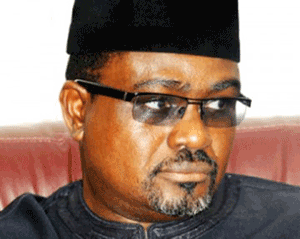In the 1950s, Nigeria used to be a major producer and exporter of columbite, tin and coal, and these minerals then contributed a lot to the national economy.
However, the nationalisation policy of the Federal Government in the 1970s and the discovery of crude oil provoked a dramatic decline in the productivity of the solid minerals sector of the economy.
For more than four decades, crude oil has been the mainstay of the Nigeria’s economy and concerned citizens moan that this development has induced the neglect of other sectors such as solid minerals and agriculture, among others.
The tacit abandonment of the solid minerals sector has brought about illegal mining, illegal trading of highly priced minerals, ecological degradation and advent of ailments such as lead poisoning due to the contamination of the environment, as well as loss of revenue due to smuggling.

The Minister of Mines and Steel Development, Mr Musa Sada, said that since the country’s return of democracy in 1999, various economic reform programmes, aimed at diversifying the national economy from a mono-product economy to a multi-product one, had been launched.
He said that the solid minerals sector, if developed in a well-coordinated way, had the potential to boost the revenue base of the country, reduce poverty and create more jobs, while having linkages with other sectors of the economy.
Sada stressed that as part of structured efforts to realise the potentials, the Federal Government had strengthened the solid minerals’ development programme via its “One Local Government; One Mineral Commodity’’ policy.
He said that the policy was particularly aimed at facilitating the development of at least one mineral in each of the country’s 774 Local Governments Areas, as part of the strategies put in place to diversify the national economy.
The minister said that the discovery of 44 solid minerals in commercial qualities across the country would facilitate the implementation of the policy in all the local government areas.
Sada said that Nigeria was richly endowed with a variety of solid minerals that were widely distributed across the different geographical belts of the country.
He, however, noted that the dominant role of crude oil in the nation’s economy did not allow past governments to tackle global challenges facing the development of the solid minerals sector.
He emphasised that the upsurge in mineral commodity prices, with the attendant global increase in solid minerals’ exploration, had necessitated the development of a policy framework that would ensure effective utilisation of the resources.
The minister said that the ministry was mandated to increase solid minerals’ production and value addition by strengthening the exploration, exploitation, processing, utilisation and marketing of the minerals.
He said that the government would implement the development of one mineral in each of the country’s local government areas under the second phase of the Subsidy Reinvestment and Empowerment Programme (SURE-P).
Sada conceded the project was to be supposed to be executed in the first phase of SURE-P but unfortunately, the first phase of SURE-P has been concluded when the ministry concluded its presentations.
“We are slotted for the second phase of SURE-P but what we did was not to sit back and wait for the second phase. We started selling the ideal to the state governments,’’ he said.
He said the Federal Government had planned to implement the programme in at least three local governments per geopolitical zone in the pilot stage but some budgetary constraints affected the plan.
Sada said that the ministry also sold the idea to all the states, adding that some of the states embraced it as a pilot project, while others took it as a whole programme.
He cited Katsina State as one of the states which had fully implemented the programme, adding that the state had commenced the exploitation of Kaolin in all its local government areas.
He said that Katsina State had abundant Kaolin reserves, covering almost all the local governments, while at the federal level, Kaolin was also one of the selected industrial minerals under the policy’s focus.
Sada said that 50 youths were trained in each of the local government areas of Katsina State to operate small-scale Kaolin mining activities, adding that some of them had established mining industries in Katsina and Kano states.
He also said that Katsina State had established some cottage industries which were producing either chalks or paints from Kaolin, adding this venture had created more jobs for the youth.
He said that as part of the strategies put in place by the Katsina State Government to keep the cottage industries in business, it had directed the use of their products across the state.
The minister said the state government had succeeded in the test run, production, mining of the Kaolin, as well as the manufacture and marketing of chalks and paints.
Sada said that Kaduna and Bauchi states had also implemented the programme as a pilot project, while several other states had indicated interest in the programme.
“The states are picking it up; we have the machines that would be used in mining processes but each state has to tell us the minerals they have and the ones they want to develop. So, the project is ongoing,’’ he said.
He stressed that the ministry would partner with the Ministry of Industry, Trade and Investment to promote the programme because it had a similar project tagged “One Commodity, One Local Government’’.
Sada said that the two ministries would jointly implement the programme, as the country was blessed with a lot of natural resources that could be used to feed local industries or processed for exportation.
“We are hoping to expand the programme and encourage all the states to pick it up. This is actually a project which we developed as part of our job-creation programme,’’ he said.
Sada said that the programme would also enhance the structured exploitation of solid minerals, while small and artisanal miners would be encouraged to improve and develop their mining activities.
He stressed that the country’s laws had spelt out how mining operators should relate with their host communities and other stakeholders so as to foster harmonious relationship between them.
The minister said that mining operators and their host communities must sign community development agreements in order to promote peace among the various interest groups.
He warned that mining companies might lose their mining titles if they refused to seek the approval of their host communities before commencing operations.
“Harmony, in terms of relationship, is vital and the law itself recognised that because mining cannot take place under chaotic relationships. Anytime an operator refused to follow the rules and regulations, he is likely to lose his licence.
“We bring in the trade and investment ministry to get market the products because if you produce all the products or materials and there are no buyers; there would be problems,’’ he said.
Sada said that the ministry would also collaborate with Small and Medium Enterprises Development Agency of Nigeria to sustain the programme because it involved small and medium-scale enterprises.
He said that the revenue generated from the solid minerals sector could be used to develop the country’s infrastructure and fund other vital sectors such as education and health.
He minister urged the incoming Buhari-administration to sustain the execution of the “One Local Government; One Mineral Commodity’’ policy, reiterating that it had several benefits, including employment generation.
Also speaking, Mr Dauda Awojobi, the Director of Mines Inspectorate, Ministry of Mines and Steel Development, said that Nigeria produced 209.66 million tonnes of various solid minerals between 2009 and 2014.
He said that the government received N6.70 billion as mining royalty from the minerals that were produced during the period.
The minerals include gold, coal, iron ore, lead/zinc, limestone, quartz, tin ore, tantalite, tourmaline, feldspar, clay, dolomite, clay, copper, columbite, granite, gypsum, kaolin and marble, among others.
Awojobi said that any nation that wanted to develop industrially ought to produce the raw materials it needed locally, underscoring the need for the government to place considerable emphasis on solid minerals exploitation.
Mr Salim Adegboyega, the Acting Director of Mines Environmental and Compliance Department in the ministry, underscored the need for mining companies to enter into community development pacts with their host communities.
He said that Sections 116 and 117 of the Mining Act provided that the companies should sign such community development agreements with their host communities before commencing mining operations.
Adegboyega stressed that signing of such agreements was imperative, as part of pragmatic efforts to avoid conflicts, ensure global best practices and assist the host communities.
Meanwhile, Alhaji Sani Shehu, the National President, Miners Association of Nigeria, has called on Nigerians to invest in the development of the mining sector, so as to avoid the indiscriminate “invasion’’ of the sector by foreigners.
He said that if more Nigerian entrepreneurs decided to invest in mining projects, there would be no need to seek foreign investors.
He, however, noted that Nigeria’s solid minerals sector was gradually becoming a viable destination for all investors.
All things being equal, the solid minerals sector will in the near future fetch Nigeria more revenue than the oil and gas sector, going by the nascent developments in the sector. (NANFeatures)













